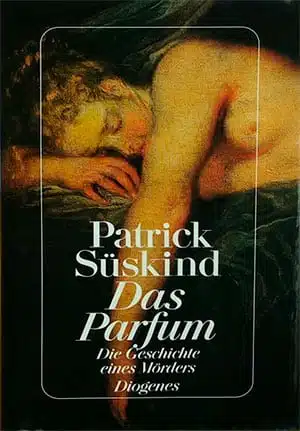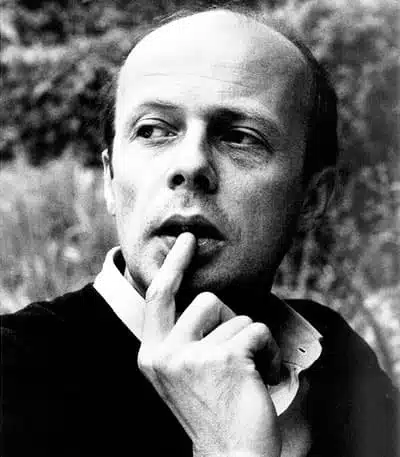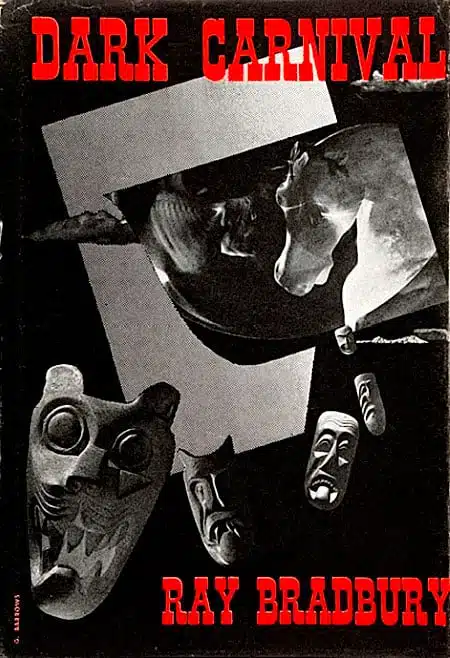Bibliographic data


Synopsis of “Perfume”
“Perfume” is a narrative set in 18th-century France that follows the life of Jean-Baptiste Grenouille, a man with an extraordinary olfactory talent. From his birth in the foul-smelling streets of Paris, it becomes clear that Grenouille is no ordinary human being. He possesses the ability to discern the most subtle and complex scents, a talent that far surpasses that of any other human. However, his unique gift comes with a deficiency: Grenouille has no personal body odor, making him a figure of marginalization and mystery.
As he grows, he develops an obsession with the scents that surround him, leading him to learn the art of perfumery under the tutelage of experts in the field. His quest to understand and master the world of scents takes him to Grasse, the center of perfumery in France. Here, Grenouille pursues a bold and disturbing dream: to create a perfume that possesses the power to capture the very essence of humanity.
Through his journey, the novel explores profound themes such as obsession, identity, and the intersection between art and morality. With rich and evocative prose, Patrick Süskind creates a sensory world in which odors come to life, raising unsettling questions about the nature of genius and the limits that society is willing to tolerate in the name of greatness. “Perfume” is a provocative and captivating story that lingers in the reader’s mind long after it has been read.
Spoiler Alert
Summary of “Perfume”
“Perfume,” originally titled Das Parfum, is a masterpiece by the German writer Patrick Süskind. This novel delves into the dark world of Jean-Baptiste Grenouille, an individual born with supernatural olfactory abilities but without his own body odor. Set in the 18th century in France, the story unravels the extremes to which a human being can go to pursue their obsessions.
The novel begins in a Parisian marketplace where Jean-Baptiste Grenouille is born under unfortunate circumstances: his mother gives birth amid rotten fish and is later executed for attempting to abandon him. Despite this tragic start, Grenouille survives. Soon, it becomes evident that he possesses a unique gift; his ability to detect scents is unparalleled. However, he completely lacks a personal body odor, a peculiarity that further distances him from society.
Grenouille becomes an apprentice in various trades, but it is under the tutelage of the perfumer Baldini that his talent truly flourishes. With Baldini, he learns the art of distilling essences and the science of perfume creation. In exchange for sharing his revolutionary formulas, Baldini teaches him additional extraction techniques and reveals the existence of the city of Grasse, considered the perfume capital.
After Baldini’s death, Grenouille embarks on a journey to Grasse. Along the way, he spends seven years in isolation in the mountains, where he faces the revelation that he has no personal scent and, therefore, no identity to others. This revelation intensifies his obsession with creating the perfect perfume.
Upon arriving in Grasse, Grenouille encounters the intoxicating scent of a young virgin. Determined to capture her essence, he murders her and discovers that her scent is the missing ingredient for his perfect perfume. From this gruesome discovery, he decides that he needs the scent of 24 similar virgins to complete his creation. Without remorse or empathy, Grenouille becomes a serial killer, collecting the scents of his victims to distill them into his coveted perfume.
The city panics over the series of murders of young women, but Grenouille always stays one step ahead, meticulous and stealthy in his enterprise. Finally, the last essence he needs is that of Laure, the daughter of the wealthy Antoine Richis. Despite Richis’s efforts to protect her, Grenouille captures and kills her.
Upon completing his perfume, Grenouille is finally captured and sentenced to death. However, on the day of his execution, he uses his perfume to seduce those present. His fragrance is so intoxicating and powerful that instead of condemning him, the attendees adore and worship him as a divine being. Even Richis, Laure’s father, is so affected by the perfume that he offers Grenouille his blessing.
After this triumph in Grasse, Grenouille returns to Paris. Although he now possesses a perfume that grants him power and adoration, he realizes that true acceptance and genuine love are beyond his reach. In a final act of self-destruction, he douses himself with the entire perfume in the midst of a group of beggars. Irresistibly drawn by his aroma, they devour him until nothing is left but his clothes.
The novel concludes with a profound reflection on the nature of obsession, identity, and acceptance. Süskind masterfully portrays 18th-century France and the dark world of perfumery while examining the depths of the human psyche through the character of Grenouille. “Perfume” is an exploration of how the senses, especially the sense of smell, can be powerful vehicles of desire, love, and repulsion, and how the lack of love and acceptance can deform the human spirit.
Key Characters in “Perfume”
Jean-Baptiste Grenouille: He is the protagonist and anti-hero of the novel. Born with exceptional olfactory talent but lacking his own body odor, Grenouille is an outsider in society. This unique combination sets him apart and gives him a peculiar perspective on the world. Grenouille is introspective, obsessive, and lacks conventional morality. Throughout the story, his obsession with scents leads him to take extreme and disturbing measures to achieve his goal of creating the perfect perfume. He seeks not love or acceptance but power and recognition through the mastery of his art.
Baldini: A declining Parisian perfumer who becomes Grenouille’s first mentor. Initially skeptical of Grenouille’s abilities, he soon realizes the young man’s talent and seeks to exploit it for his own benefit. Although a secondary character, Baldini is crucial to Grenouille’s development as a perfumer. He is a shrewd businessman but is also portrayed as shallow and limited in his understanding of the art of perfumery compared to Grenouille.
Antoine Richis: A wealthy merchant from Grasse and Laure’s father, the last victim of Grenouille. He represents the protective figure and also the helplessness in the face of Grenouille’s obsessive forces. Despite his efforts to protect his daughter from Grenouille’s threat, his attempts prove futile. After Grenouille’s capture, he emerges as a paternal figure in contrast to Grenouille’s biological mother’s complete detachment.
Laure: The last and most prized of Grenouille’s victims. While her role is relatively brief, she symbolizes the olfactory perfection that Grenouille seeks to complete his perfume. She is beautiful, innocent, and her scent is unmatched, making her the ultimate target of Grenouille’s obsession.
Madame Gaillard: The matron of the orphanage where Grenouille spends his early years. She lacks sensory perception, as she has no sense of smell. This deficiency provides an interesting contrast to Grenouille’s supernatural ability. She is a detached woman who views the children under her care merely as a source of income.
Grimal: A tanner who employs Grenouille during his youth in Paris. He is cruel and sees Grenouille as little more than a useful tool for his business. Under his employment, Grenouille experiences some of the most unpleasant odors in Paris, further expanding his olfactory palette.
Analysis of “Perfume”
“Perfume,” one of Patrick Süskind’s most iconic works, has left an indelible mark on contemporary literature. This novel stands out not only for its captivating narrative and memorable characters but also for its profound analysis of human nature and how the senses, particularly the sense of smell, play a fundamental role in our perception and relationship with the world.
Placement in Süskind’s Work
Within Süskind’s literary corpus, “Perfume” stands out as his most acclaimed work and earns him a place of honor among contemporary literati. While Süskind has written other significant works, none have resonated with the same intensity and originality as this one. “Perfume” solidifies many of the author’s recurring themes, such as obsession, alienation, and the search for identity.
Historical Context
Set in 18th-century France, “Perfume” provides a vivid and often grim representation of pre-revolutionary Europe. This was a period of great social inequalities, scientific advances, and a flourishing interest in art and culture. Perfumery, in particular, was a lucrative business and a refined art. Grasse, considered the perfume capital in the novel, was (and still is) a real center of the perfumery industry. The choice of this period allows Süskind to play with contrasts: the beauty and refinement of perfumery versus the decay and putrefaction of cities, the rise of the bourgeoisie and aristocracy versus the misery of the lower strata of society.
Key Themes
Obsession: Grenouille’s life revolves around his obsession with scents. His desire to create the perfect perfume leads him to commit acts of extreme cruelty. This obsession is a representation of human pursuit of perfection and transcendence, as well as the extremes to which a human can go when driven by an uncontrollable desire.
Identity and Alienation: Grenouille, lacking his own scent, grapples with an identity dilemma. This deficiency sets him apart and alienates him from society. The novel examines how the need for belonging and recognition can deform and consume the human soul.
The Power of the Senses: Grenouille’s supernatural ability highlights the role that senses play in our relationship with the world. The sense of smell, often overshadowed compared to sight or hearing, becomes a vehicle for power, seduction, and control in the novel.
Reception and Influence
Since its publication in 1985, “Perfume” has garnered praise from both critics and readers. Its originality, narrative richness, and deep exploration of the human psyche have earned it a place as a contemporary masterpiece. It has been translated into numerous languages and adapted into film, demonstrating its impact and relevance in popular culture.
However, it has not been without criticism. Some have pointed out that the portrayal of Grenouille, especially his crimes, can be problematic. Despite this, its influence is undeniable. It has inspired other writers, filmmakers, and artists to explore similar themes and consider the importance of smell and the senses in the human experience.
In conclusion, Patrick Süskind’s “Perfume” is a rich and complex work that challenges narrative conventions and invites us to reflect on human nature. Its exploration of power, obsession, and identity makes it essential reading for any literature enthusiast.


